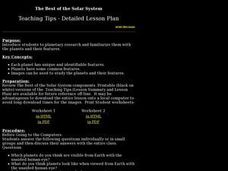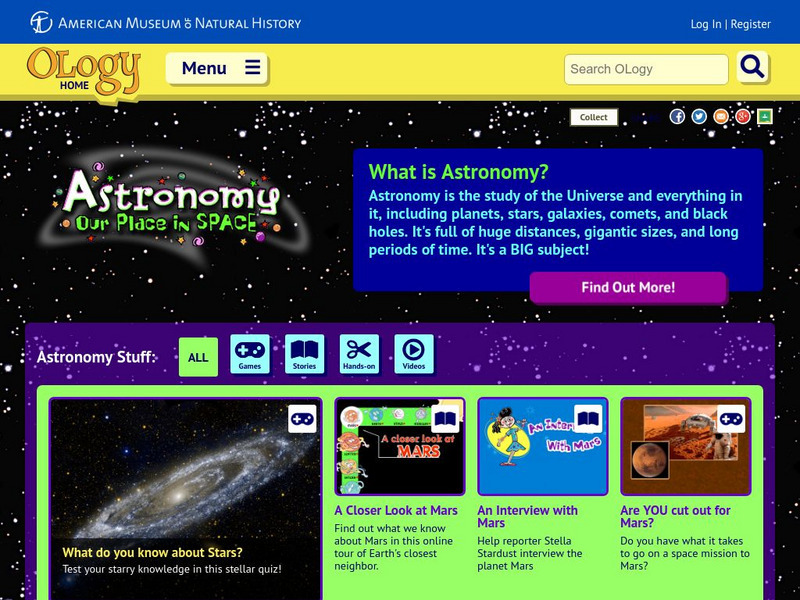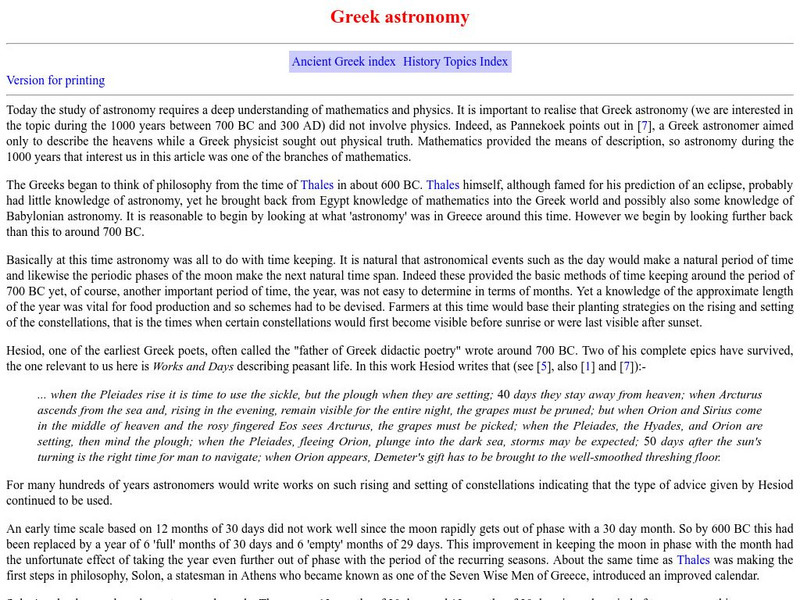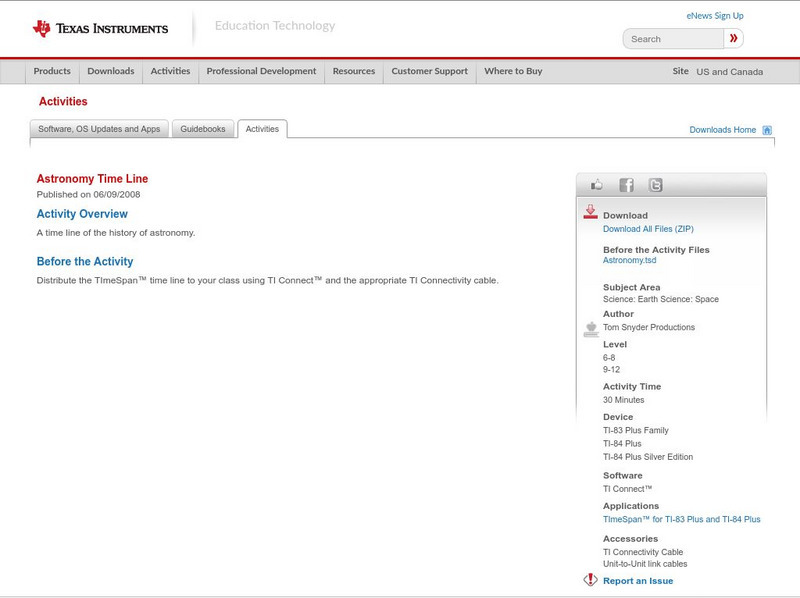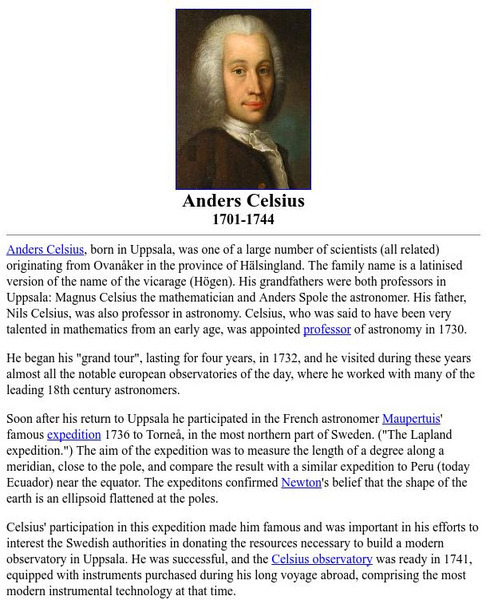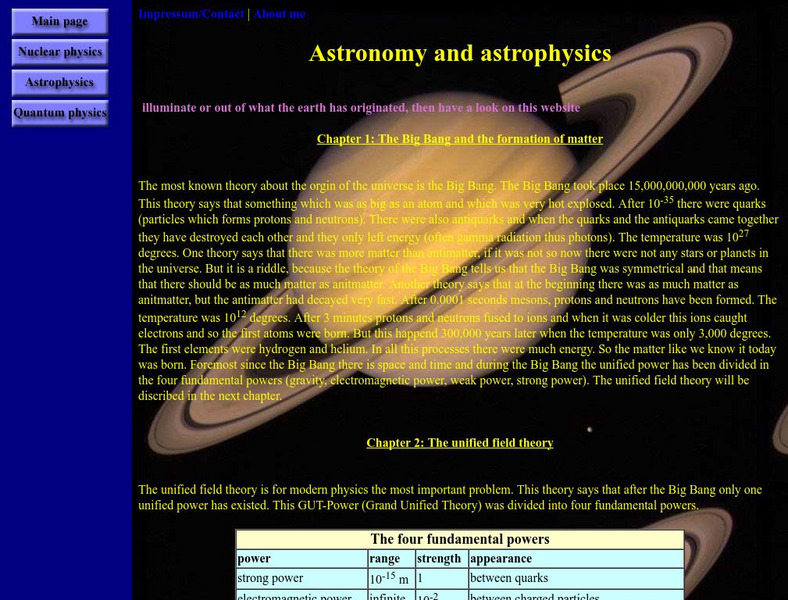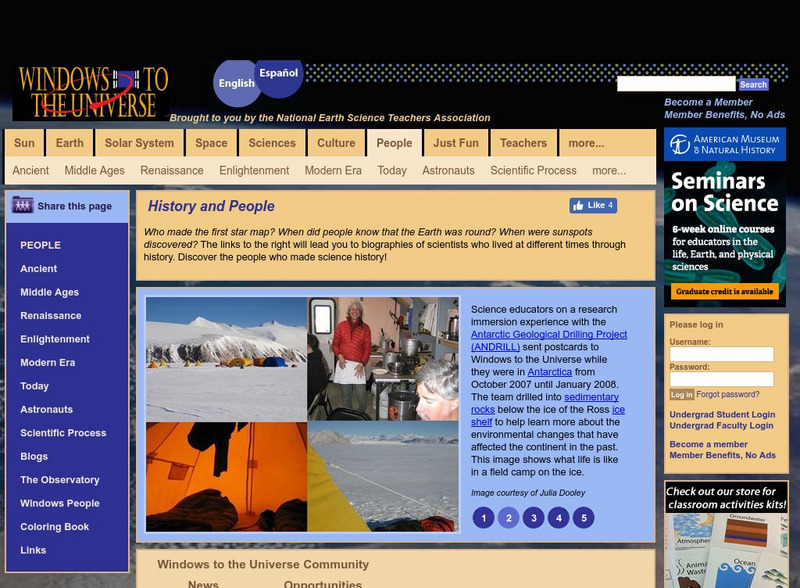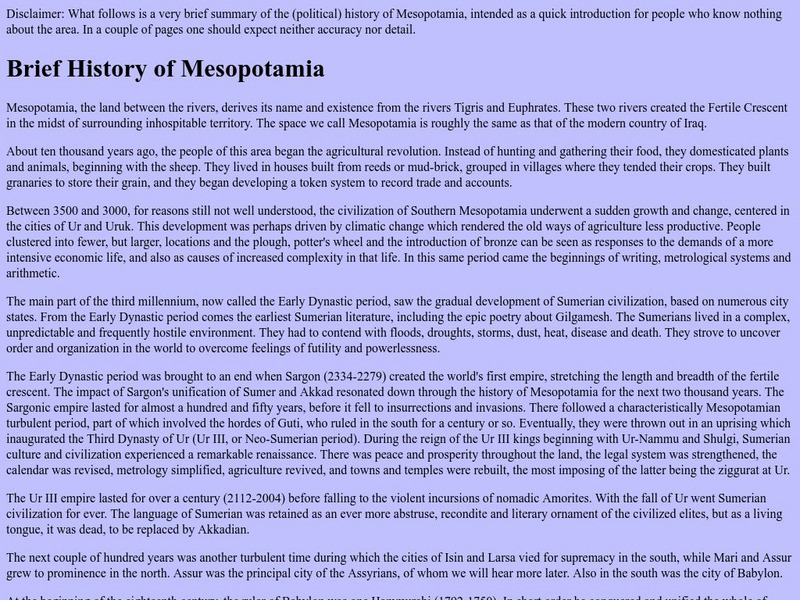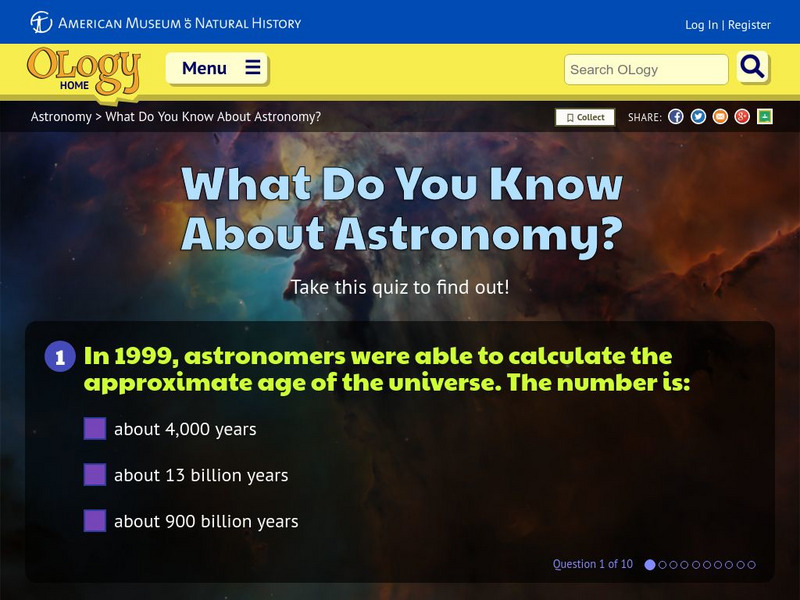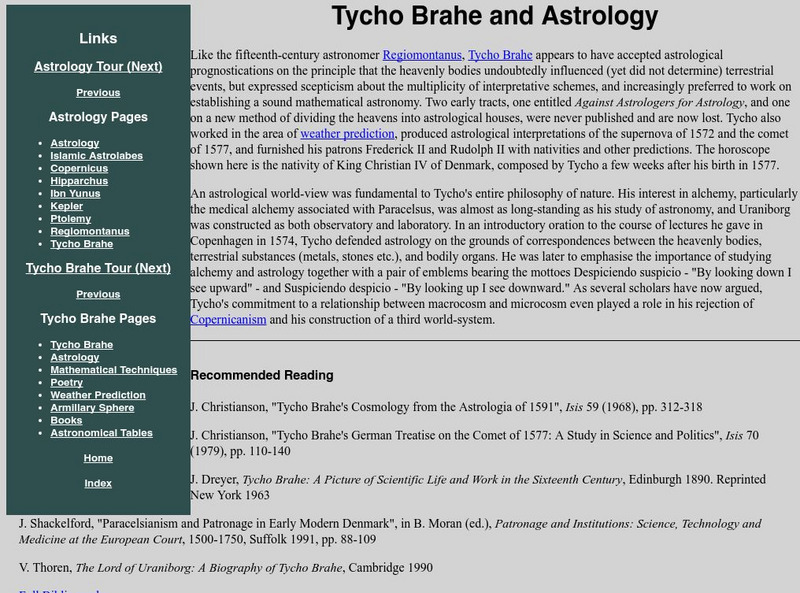Curated OER
Planetary Research (Grades 9-12)
Students are introduced to planetary research and familiarize them with the planets and their features. They see that each planet has unique features. Planets have some common features and that images can be used to study the planets and...
Curated OER
How Distant is the Moon?--2
Students examine total eclipses of the Sun and their limited regions of totality. They explain that this limited view occurs because the Moon is close enough to us for different points on Earth to view it differently.
Curated OER
Science
Third graders study light and shadow, participate in mirror activities, and build a periscope.
Curated OER
Lives of Stars
Pupils take notes on the lives of stars. In this lesson on stars, students take notes alongside a PowerPoint presentation about the lives of stars.
Georgia Department of Education
Ga Virtual Learning: A Brief History of Astronomy
In this interactive module students will explore what different ancient cultures believe was an explanation of the stars and planets. They will look at how the work of Nicolas Copernicus revolutionize the world of astronomy and learn how...
American Museum of Natural History
American Museum of Natural History: O Logy: Astronomy: Our Place in Space
This resource is a place for learning all about astronomy--stargazing, planets, space science, and interesting astronomical phenomena and discoveries. Explore, ask questions, find information, and meet American Museum of Natural History...
American Museum of Natural History
American Museum of Natural History: Ology: Astronomy: Are You Cut Out for Mars?
Do you have what it takes to go on a space mission to the Red Planet? Think you can handle it? Take this quiz to find out!
University of St. Andrews (UK)
University of St. Andrews: Greek Astronomy
Provides an overview of ancient Greek astronomy and the major figures who played a role in developing ideas about the Universe.
Ducksters
Ducksters: History: Renaissance Astronomy for Kids
Kids learn about the science of astronomy during the Renaissance. Discoveries by Copernicus, Galileo, and Kepler.
Other
Sky Server: About Astronomy
This site from SkyServer provides the history of astronomy as well as links to mapping the sky, galaxies, cosmic structures and much more. Several pictures are given, and the article is medium in length.
McGraw Hill
Mc Graw Hill: Astronomy Timeline
A comprehensive timeline c30,000 B.C.-2002 A.D. for those studying the history of astronomy.
Other
History of Astronomy in Uppsala: Anders Celsius
A lengthy account of the life and work of Anders Celsius. Describes his studies of astronomy and his development of the Celsius temperature scale.
Other
Astronomy and Astrophysics
This site is about Astronomy and Astrophysics. The site has plenty of information and links to related topics.
NASA
Nasa Space Science Data Archive: Astronomy and Astrophysics
NASA sponsored site dealing with several topics in Astronomy and Astrophysics. The site provides links to various topics.
National Earth Science Teachers Association
Windows to the Universe: History & People
Biographies of people throughout history who looked at the sky and wondered what was there. Links to a detailed description of the planets and interactive activities.
Other
Explorable: Ancient Astronomy, Science and the Ancient Greeks
Discusses the influences of other cultures on ancient Greek astronomers, and the advances made by the Greeks. It highlights major astronomers and those who contributed important ideas from the 6th to the 2nd centuries BC, including...
Other
Astro Mia: Tierra, Sistema Solar Y Universo
This site is a good resource to study Astronomy. It has six sessions: the Universe, the solar system, the earth and the moon, history of Astronomy, articles, famous astrologers and a glossary.
Other
St. Lawrence University: Brief History of Mesopotamia
A paper which discusses the accomplishments of early Mesopotamian society in the fields of mathematics, astronomy, and literature.
American Museum of Natural History
American Museum of Natural History: O Logy: What Do You Know? Astronomy
Take this ten-question self-scoring quiz to test your knowledge of astronomy facts: age of the universe, why stars and planets are spheres, where other life might exist in the outer space, the Milky Way, and more.
Other
U of Cambridge: Tycho Brahe and the Separation of Astronomy From Astrology
The subject of the paper is the shift from an astrology-oriented astronomy towards an allegedly more objective, mathematically grounded approach to astronomy. This shift is illustrated through a close reading of Tycho Brahe's scientific...
World History Encyclopedia
World History Encyclopedia: Greek Astronomy
Looks at the history of Greek astronomy from the 4th century BC on, and the major figures who contributed ideas. Includes a timeline of Greek science.
Smithsonian Institution
National Air and Space Museum: Exploring the Planets: Ancient Times & the Greeks
In ancient times only five planets were known: Mercury, Venus, Mars, Jupiter, and Saturn. Learn about Greek astronomer Ptolemy's theory for the solar system that was to survive for fourteen centuries.
NASA
Nasa: Imagine the Universe: The History of Gamma Ray Astronomy
This NASA article discusses the history of gamma-ray astronomy. Related resources.
Other popular searches
- Ancient Astronomy
- Astronomy History
- Astronomy History People
- The History of Astronomy
- Aztec Astronomy History
- Ancient Astronomy Info
- Ancient Greek Astronomy
- Korean History Astronomy


